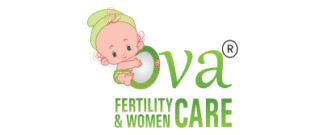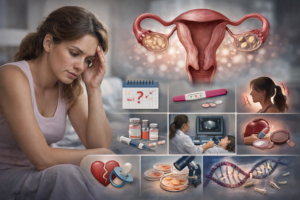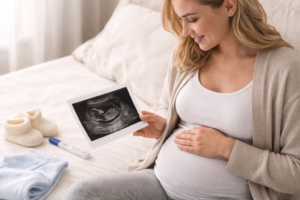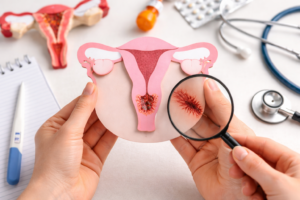What foods are best for a healthy diet in pregnancy?
Everyone knows that it is essential to have a healthy diet during pregnancy. However, it is not very well known that it is equally essential to have a good and healthy lifestyle along with the diet Even before one considers the pregnancy there are many nutrients and micronutrients in food, a deficiency of which, can lead to abortions or abnormalities in the developing fetus. The most common example is folic acid deficiency. Deficiency of this vitamin is linked to many abortions and brain abnormalities. Similarly, an excess of things can also lead to abnormality. For example, high sugar levels in blood, like what happens in diabetes can lead to congenital heart defects and spinal cord problems in the baby.
Q: what is a healthy diet for pregnant women.
A: A balanced diet comprises of optimum amounts of protein, carbohydrates and fats along with the necessary vitamins, antioxidants and micronutrients.
One need not consume expensive vitamin tablets or supplements.
Food is the best medicine and planning your diet properly can lead to a healthy pregnancy outcome.
Proteins:
The average Indian diet is carbohydrate rich and protein deficient. It means that we eat more of rice, roti or bhakri which are rich in carbs and not so much with proteins.
| Daily protein requirement in pregnancy | approx. 1.2 – 1.5 grams per kg current body weight |
| Ex. An average pregnant lady weighing 65 kgs would require | around 80 grams of protein every day |
|
Non-vegetarians must include –3 -4 eggs in their daily diet (1 egg contains approx. 6 gms of protein). |
Myth: Eggs are traditionally believed to be “garam” and one must not have non vegetarian food during pregnancy. |
| Fact: Eggs, meat and fish are rich in proteins, minerals and vitamins. These certainly help to make up for the protein requirement. | |
|
Vegetarians must add – (a) Soybean flour (at least 20% or more) to the roti aata, eat Soya granules or nuggets on a daily basis. (b) 2 glasses of milk every day or use same amount to convert yoghurt or curd, lassi or paneer (for lactose intolerance condition). (c) 2 bowls of sprouts daily as they are rich source of proteins, vitamins and fiber. |
Myth: Soybean disrupts growth |
| Fact: Soybean contains more protein than most meats |
Carbohydrates:
The fuel for our body and brain is glucose and we get this through carbohydrates. Hence, carbohydrates should have a major part in our diet.
The traditional Indian diet, however, is very carbohydrate rich. A major part of our meals consists of rice and roti. This was all very good when people used to work in the fields doing manual labour (Since muscle work needs a lot of glucose). Nowadays, we hardly indulge in any major muscle work, apart from running behind a bus or train. Our dietary habits, however, have remained the same. So, the excess carbohydrates which are consumed are converted to fat by the liver and deposited in the body. No wonder India is experiencing an obesity epidemic nowadays. The simple way to cut carbs is to not indulge in
- Simply cut down high carb snacks like bread items and biscuits.
- Increase dal, vegetable and salads in the meals and
- Decrease the quantity of rice and roti.
This way the meal will be balanced and excess carbohydrates will be avoided.
Fats:
Brain is made out of 100% fat.
Also, there are many hormones which are basically made from cholesterol. Plus, we get vitamin A, vitamin E and vitamin K (which are fat soluble) only through fats. Hence fats are not all that bad.
Each type of fat whether animal origin like lard, ghee and butter or vegetable origin fats like olive oil, groundnut oil, sunflower oil etc. have their pros and cons. If consumed in moderation, there is hardly any benefits of one over the other. The main aim should be moderation.
Fat should not exceed 15 to 20% of your food consumption (calorie wise). Since fats are very calorie rich, the amount of fat to be consumed daily should not be high. One has to remember that the added oil while cooking or fried food is not the only fat we consume, as meat and eggs do contain fat and so do nuts and some fruits like avocado and beans.
Limit the intake of fat on daily basis – All food products bought from outside and ready to eat like bread, biscuits, chocolates, ice cream, full cream milk, etc.
Vitamins:
Whenever we cook food, we destroy most of the vitamin content. So, it is essential to consume some amount of raw fruit and vegetables on a daily basis. However, when we consume raw food it can lead to infections like typhoid and hepatitis if not cleaned properly. Hence, it is better to wash the vegetables in a weak permanganate solution or hydrogen peroxide solution (which are easily available nowadays) before consumption.
Fruits which have a covering are relatively germ free after the covering is removed. For example, a banana. One thing to remember, however, is that the vitamin content of fruit and vegetables depletes rapidly upon cutting So they have to be consumed immediately after cutting. These simple facts if utilized daily in our diet will lead to on nice balanced diet and help you and your developing child to achieve a better outcome.
For a personalized diet you can contact us at Ova Fertility and Women Care and speak with doctor and/or dietitian. We are happy to serve you at Ova Fertility & women Care
- Detail discussion with Fertility Specialist about need of treatment , alternative options ( shared decision ), individualised success rate of the treatment , any adverse effects and the process of the treatment
- Necessary tests for couple
- Lifestyle modifications like healthy diet, regular physical exercise, mind relaxation , control of existing medical conditions, vaccinations if any, stopping alcohol intake and smoking if any
- Counselling sessions by Fertility Specialist, Embryologist and IVF Nurse
- Understanding and signing consents for the procedures
Lorem ipsum dolor sit amet, consectetur adipiscing elit. Aliquam sed sagittis nisi. Curab itur eget sagittis dui. In dignissim mauris augue
- Medications to stimulate the ovaries to produce multiple eggs
- Monitoring by blood tests and sonography
- Collecting eggs trans vaginally under ultrasound guidance with minimal anaesthesia
- Collecting sperms on same day
- Embryos are formed in laboratory by advanced techniques (ICSI)
- Embryos are transferred to womb (Uterus) under ultrasound guidance
- Medications to support implantation process
- Pregnancy test after 15 days
Failure of IVF cycle is a devastating situation for the couple and thus it is very important phase of treatment where at most support is required to tide over the crisis . The couple is in a complex emotional state with feeling of depression, anger, uncertainty, hopelessness, helplessness, fear of social stigmatisation and so on. In this distress patient centred care is needed and emotional support from various sources like clinician, counsellors, nurses, family members, support group is appreciated.
At Ova Fertility and Women Care, we have specialised team dedicated to emotional support of the couple. In such situation, we discuss in details about the possible reasons of failure and way forward. We help couple to cope with their mixed emotions and to move towards their dreams.









 No need to worry, your data is 100% Safe with us!
No need to worry, your data is 100% Safe with us!